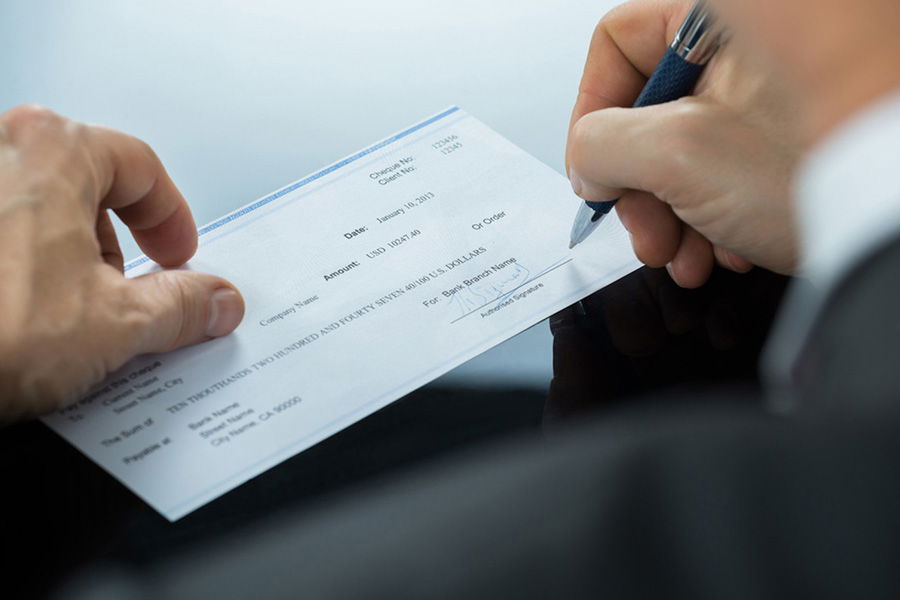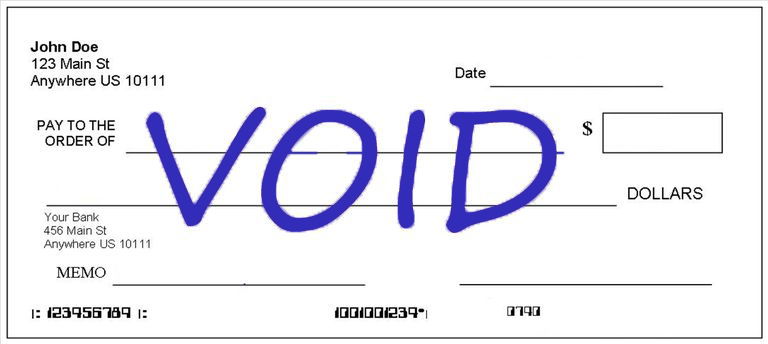Mastering your checking account is a key piece of the personal finance puzzle. In the mix, there’s a tricky bit that often gets missed: the returned check. So, what’s a returned check, and why should you keep an eye out for it? Let’s dive in and break it down.

Key Takeaways
- A returned check occurs when a bank refuses to process a check due to issues like insufficient funds, signature mismatches, or account closures, leading to potential fees for both the check writer and recipient.
- Check writers should rectify the situation promptly by contacting their bank to understand the reason for the returned check, paying any associated fees, and communicating with the recipient to settle the outstanding amount.
- To prevent returned checks, it’s important to monitor your account balance, use overdraft protection services, and consider alternative payment methods like online transfers or debit cards.
Defining a Returned Check
A returned check, often synonymous with a “bounced check“, is a check that has not been honored by a financial institution due to a variety of possible issues. Understanding the check clearance process is key to comprehending why checks might be returned.
When you write a check, you are essentially issuing a promise that your financial institution will pay the designated amount to the recipient’s account. If, for any reason, your financial institution refuses to fulfill this promise, the check “bounces” back to the issuer. This refusal often has more to do with the check writer’s account than the check recipient’s account.
Common Reasons Why Checks Are Returned
Understanding why checks are returned can help you avoid this inconvenient and potentially costly scenario. Here are some common causes:
- Insufficient funds: A primary cause for returned checks is insufficient funds in the check writer’s account. If your checking account doesn’t have enough money in it to cover the check amount, your bank or credit union will likely return the check. While sometimes this might result from an honest mistake, such as forgetting to account for an automatic payment, it’s always best to double-check your account balance before writing a check.
- Post-dated checks: If a check is cashed or deposited before the date written on it, your financial institution may decide not to honor it and return it instead. While this largely depends on your bank’s policies, it’s always safer to avoid issuing post-dated checks.
- Stop payment order: A check can be returned if the check writer issues a stop payment order. Essentially, this order instructs the bank not to pay the check. While a stop payment fee might be incurred, this could be a useful step if you believe there might be a problem with the check.
- Closed account: A check drawn on a closed bank account will always be returned. If the check writer’s account has been closed for any reason, no payments can be issued from that account.
- Signature mismatch: Financial institutions verify the signature on the check with the one on file at the bank. A discrepancy here might lead to a returned check.
- Frozen account: An account might be frozen due to legal issues, ongoing fraud investigations, or other such reasons. In such scenarios, the financial institution will not honor checks drawn on the account.
- Invalid check details: Clerical errors like an incorrect account number, routing number, or check number could cause a check to be returned.
The Consequences of Having a Check Returned
Beyond the inconvenience and potential embarrassment of having a check returned, there are several serious consequences to consider:
- Bank fees for the sender: If you write a check and there aren’t sufficient funds in your checking account to cover it, you’ll likely face a non-sufficient funds (NSF) fee or a returned check fee imposed by your financial institution. These charges vary but can often be substantial.
- Bank fees for the recipient: The check recipient’s bank may also charge a bounced check fee if a check is returned. This can create friction between the recipient and the check writer and potentially jeopardize their relationship.
- Impact on your credit score: A returned check can lead to a dip in your credit score if not resolved quickly. In some cases, the recipient may report the bad check to credit bureaus, which can negatively affect your creditworthiness.
- Legal consequences: Continuous patterns of writing bad checks can potentially result in legal trouble, with laws varying from state to state. Depending on the amount of the check and the laws in your jurisdiction, it could be classified as a misdemeanor or a felony.
Dealing with a Returned Check as the Check Writer
If you’ve inadvertently bounced a check, you should take immediate steps to rectify the situation. The first thing to do is contact your bank or credit union to understand why the check was returned and discuss the fees you might owe, such as the NSF fee or stop payment fee. Your financial institution is a critical partner in resolving these issues, even if the bounced check was due to an honest mistake.
Next, reach out to the check recipient. Open and honest communication can help prevent misunderstanding and maintain trust. Arrange to pay the amount owed, which could involve writing a new check if you now have sufficient funds in your account, or exploring alternative payment methods if necessary.
Dealing with a Returned Check as the Check Recipient
On the receiving end of a bounced check, it’s essential to contact the check writer directly and inform them about the issue. They may not be aware of the situation, and a simple conversation might be all it takes to get the issue resolved.
However, if the check writer doesn’t cooperate or rectify the situation, there are legal measures you can take to recover your funds. Remember to account for any associated fees you might have incurred, like the bounced check fee.
How to Prevent Returned Checks
Having a check returned is a stressful situation that most people would prefer to avoid. By following these practical tips, you can minimize the chances of facing returned checks:
- Maintain sufficient funds: Keep track of your account balance and ensure there are enough funds to cover any checks you write. This involves being aware of any pending transactions that may affect your account balance.
- Regularly monitor your account: Stay updated with your checking account activity. Most banks and credit unions provide online and mobile banking services that can help you keep an eye on your account balance and transactions.
- Use overdraft protection: Overdraft protection services can prevent bounced checks by automatically transferring funds from a linked account to cover the check amount. While there may be associated fees, they are often less than overdraft fees.
- Consider alternative payment methods: Given the evolution of digital banking, there are numerous alternative payment methods you can use. These include online transfers, debit cards, and personal loans, all of which offer different benefits and levels of convenience.
The Pros and Cons of Writing Checks
In today’s fast-paced, digital world, it’s important to understand the pros and cons of writing checks. While checks can be convenient for large transactions, they carry risks such as potential returned check fees and the need to maintain a sufficient balance in your checking account at all times.
Compared to other forms of payments, such as debit cards, electronic transfers, or personal loans, checks require a more active role in personal finance management.
Bottom Line
It’s important to understand how returned checks work and how to avoid them. By ensuring there is enough money in your checking account, actively monitoring your account, and considering alternative payment methods, you can avoid the inconvenience and potential financial and legal troubles associated with returned checks.
Remember that while mistakes can happen, habitual bounced checks can lead to serious consequences. Stay proactive, keep an eye on your account balance, and consider overdraft protection or alternative payment methods. Your personal finance journey is sure to be smoother if you take these precautions.



